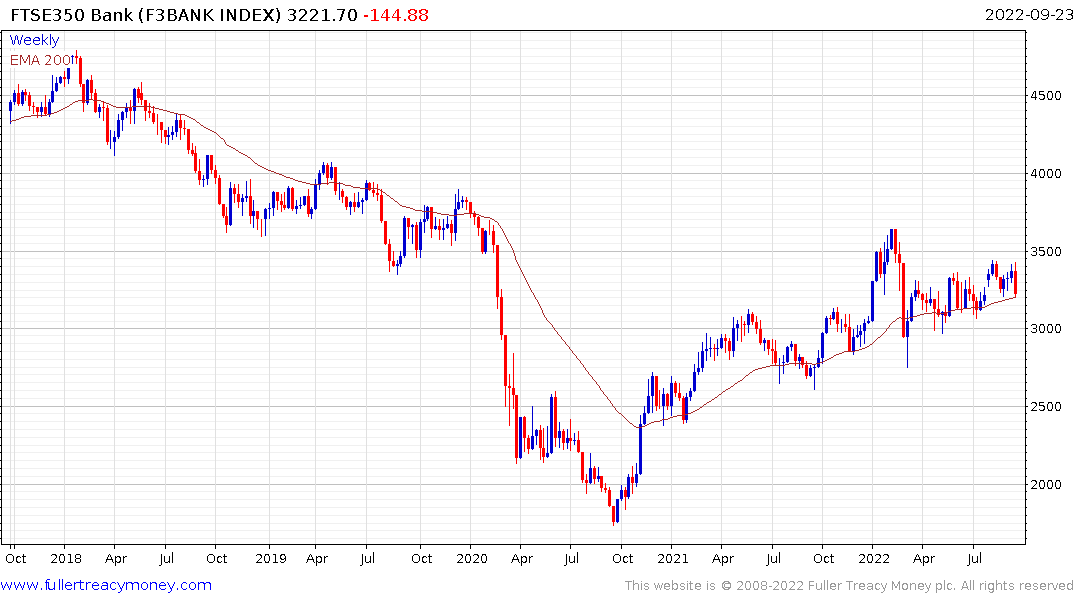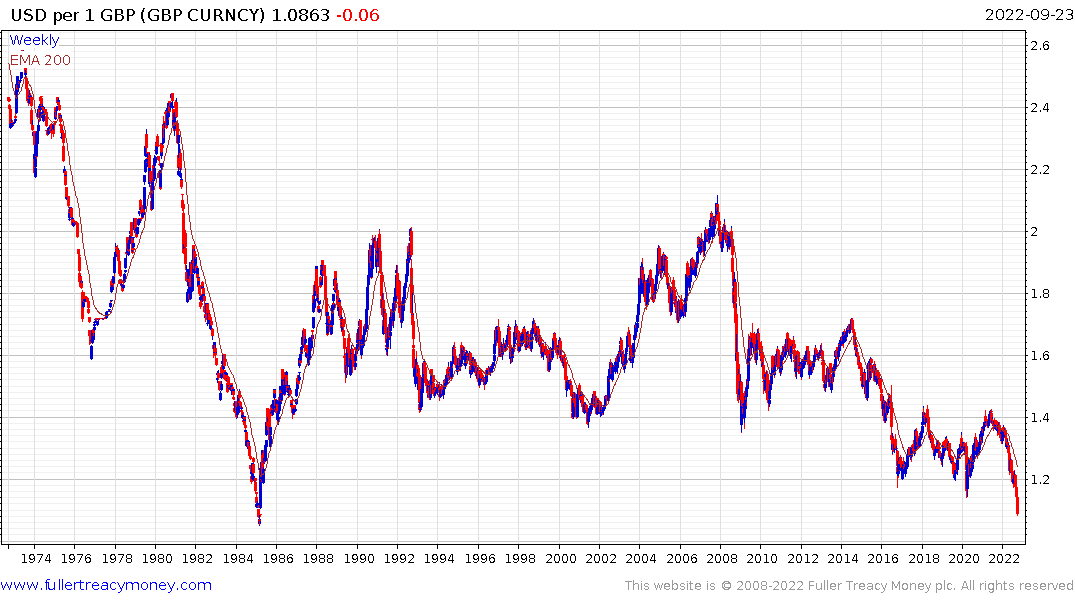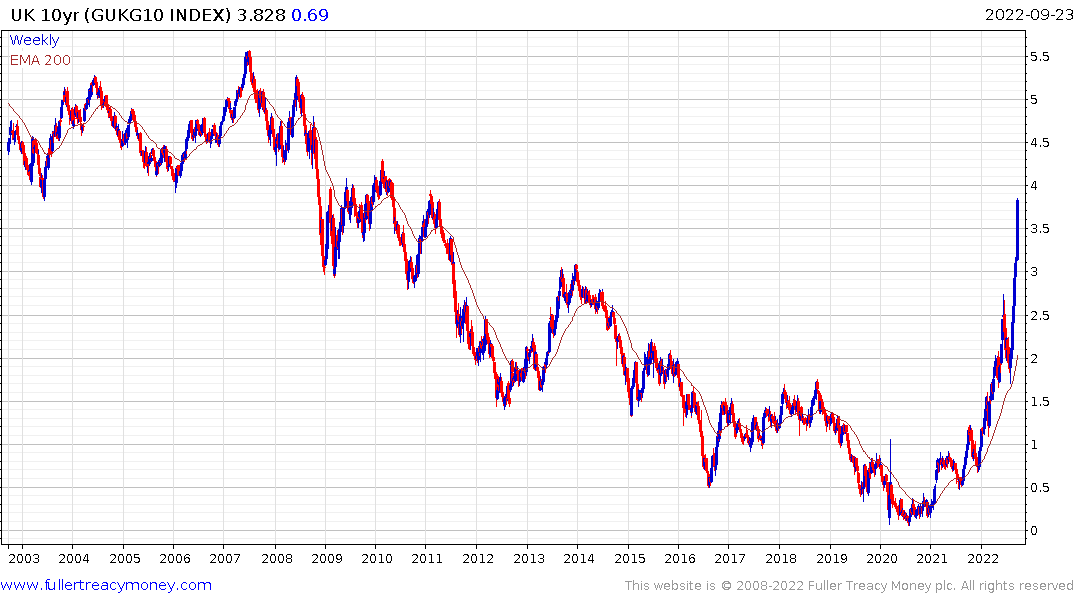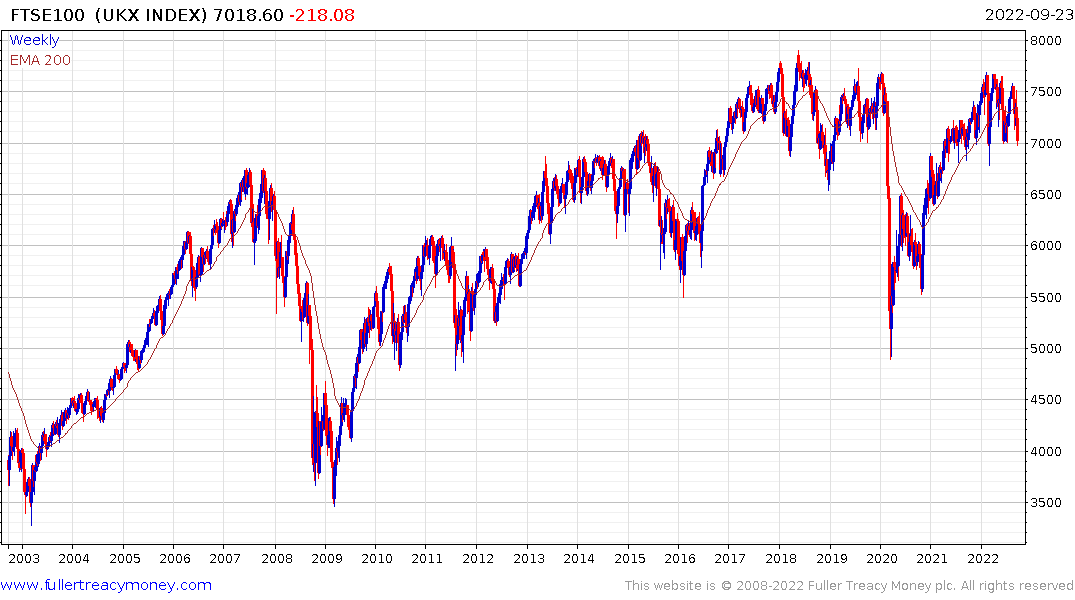UK's Biggest Tax Cuts Since 1972 Trigger Crash in Pound, Bonds
This article from Bloomberg may be of interest to subscriber's.
Liz Truss’s new British government delivered the most sweeping tax cuts since 1972, slashing levies on rich households and companies in a bid to boost economic growth in a move that triggered a massive market selloff in UK assets.
Chancellor of the Exchequer Kwasi Kwarteng announced a series of tax cuts and regulatory reforms that will cost £161 billion over the next five years. That fanned concerns about inflation, already near a 40-year high, and about a spiraling government debt burden.
The pound crashed below $1.11 for the first time since 1985, sliding 2% in addition to declines earlier in the week. Borrowing costs on five-year government bonds jumped the most for a single day on record as traders dumped UK assets.
“It is extremely unusual for a developed market currency to weaken at the same time as yields are rising sharply,” said George Saravelos, global head of foreign exchange research at Deutsche Bank AG. He warned the UK currency is “in danger” and suggested markets were treating it like a developing economy.
The package was more ambitious than expected, with a big giveaway for the UK’s wealthiest households and plans to tear up planning rules and reform financial regulations.
Kwarteng scrapped the 45% additional rate of income tax, paid by only the richest earners, leaving the top rate at 40%, and cut the basic rate from 20% to 19%. He paid only lip service to concerns about rising public debt, reiterating a pledge to “reduce debt as a percentage of GDP over the medium term.”
The Conservative administration hopes its program of lower taxes and deregulation will turbo-charge the economy, staving off a recession that the Bank of England says has already begun and shaking the UK out of a decade of weak growth.
In case it needs to be said, these are not Conservative policies. Cutting taxes and embarking on an historic fiscal stimulus while inflation is raging is not sound policy. It is only going to make the job of the Bank of England even more difficult and taxes will inevitably have to rise in future to fund these measures.

 The Pound continues to be sacrificed on the altar of rabble rousing policy ineptitude. This is the third time in 14 years that the Pound has taken a leg lower. The fiscal excess of the Gordon Brown years was punished by the Global Financial Crisis with a drop of 36% against the US Dollar. Then the Brexit referendum resulted in another major decline, this time of 31%. Now the energy panic stimulus is resulting in another down-leg. If history is any guide, we can expect a terminal rate around parity and $1.20 will be future resistance.
The Pound continues to be sacrificed on the altar of rabble rousing policy ineptitude. This is the third time in 14 years that the Pound has taken a leg lower. The fiscal excess of the Gordon Brown years was punished by the Global Financial Crisis with a drop of 36% against the US Dollar. Then the Brexit referendum resulted in another major decline, this time of 31%. Now the energy panic stimulus is resulting in another down-leg. If history is any guide, we can expect a terminal rate around parity and $1.20 will be future resistance.

Gilt yields are accelerating higher. The FTSE-350 Banks Index looks susceptible to additional weakness and potentially an acceleration lower.

The FTSE-100 has type-2 top formation characteristics and appears to be on the cusp of breaking lower.
When the recession begins and inflationary pressures turn into deflation fears, stock market weakness will likely create a bid for bonds. A clear downward dynamic will be required to check the slide of the Gilts.
The policies put in place today to ease regulation should ultimately help to close the energy availability gap and the devaluation of the Pound will boost domestic competitiveness. Eventually, this will create the conditions for a strong recovery but a recession will have to be endured first.
Back to top

